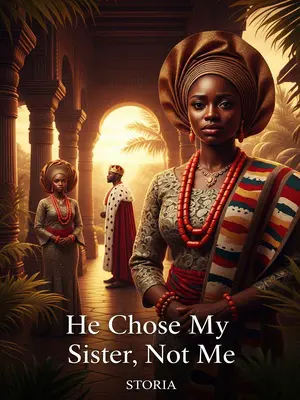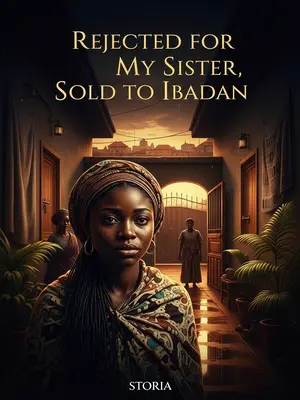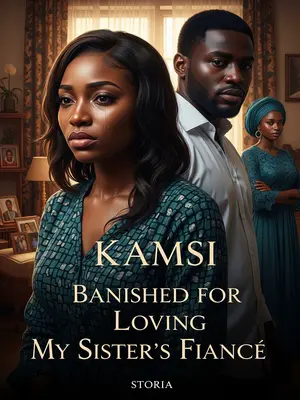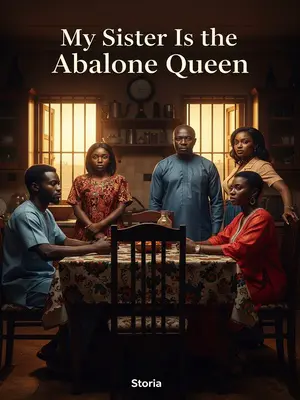Chapter 2: The Night of Fire
I can never forget that day. Even if thunder fire me, the memory dey burnt inside my mind like the scars for my sister wrist.
The rebel soldiers burst enter royal palace, their shouts echo for the old walls. The palace wey dey smell of attar and palm oil before now dey full of smoke, gunpowder, and death.
The king’s guards drop one by one, bodies scatter everywhere like broken yam tubers. Their red cloths soak with blood, faces twist with pain.
My sister and I hide behind curtain, her hand tight cover my mouth so I no go scream. My breath hot and fast against her palm, I try swallow my sobs.
We watch, eyes wide, as Musa Garba—uniform full of mud and pride—drive sword enter my papa chest. The clang of metal and my papa gasp cut the air like blade.
Some rebel generals, eyes red like say madness dey their head, rush at my mama like hungry hyenas find meat. My mama scream—sharp as broken glass—na sound I never fit forget.
Shame too much, my mama run go hit her head for pillar. The dull thud, her wrapper fall for ground—the memory dey haunt me any time I close eye.
Blood splash reach my toes—red like zobo stain, hot and sharp. My whole body dey shake, bone dey threaten to break.
Musa Garba, eyes red like fire, dey scan the palace chambers—like say he dey look for rat wey fit escape. Every shadow na target, every cough na threat.
My sister whisper for my ear, breath dey shake but her voice strong for my sake.
"Amara, no cry. Big sister go protect you. No matter wetin happen."
She bite her lip till blood come, hold her own fear inside.
She hold me, slip out the back door, hide us behind dead guards—faces I know from festival days.
Then she begin tear her own clothes, face set with stubbornness wey even gods no fit change.
My voice dey tremble, barely a whisper.
"Sister, wetin you dey do?"
She force smile, eyes bright with tears and strong love.
"Amara, stay here. No move. Wait for me come find you. Promise me, biko."
Since small, I dey always obey my sister. She be my moon for darkness, my shield.
So I hide behind dead bodies, no move, wait for her one full day and night. Hunger and fear tie my belle, lips dry, skin sticky with sweat and blood wey no be my own.
Next morning, my sister come back. She move like spirit—quiet, steady.
By then, she don dress like Zamfara woman. Scarf tie correct, eyes sunken, face pale like harmattan moon.
She touch my face, whip marks dey her wrist. She rush hide am, but I see.
She hug me, tears of relief run down, breath ragged as she whisper, "E don finish. I dey here. I promise, I keep am."
"Amara, he promise not to kill you, to let us live. Just stay quiet, biko."
Her tears soak my shoulder. I see her sleeve, blood stain am. My own tears join her own.
Later I understand wetin my sister do. The truth pain me like fresh wound every time I breathe.
She tear her own clothes, almost naked, kneel for rebel leader Musa Garba. She use her body buy my life, and the shame go follow us forever.
"I, Princess Morayo, Morayo Ifedolapo, don dey admire the great king."
She kneel, body small, long hair cover her brown skin—like dry leaf for Harmattan breeze—light, lost, ready to scatter. The old palace walls dey watch, silent, no fit help am.
"Now wey old king die, I fit offer myself to calm the king’s heart."
My sister sabi say Musa Garba dey like women. As princess, she play her only card well.
As expected, Musa Garba laugh, voice loud reach roof.
"I hear about Princess Morayo. I no know say she wise like this. Since she dey generous, I go accept am." His voice full of pride, like person wey win trophy.
He carry my sister enter inner chamber, his men dey whisper, dey laugh. My heart break again.
From then, no more talented and fine Princess Morayo—only Lady Ifedolapo for king harem. Her name, once song for praise singers, now shadow for palace gossip.
My sister send me out of Kaduna, make rich family for Makurdi raise me—far from new regime. She watch me go, eyes full of longing and heartbreak.
On the day we part, she dey choke with sobs:
"Amara, if I fit protect you, I go bring you back. If e no happen, forget me. Live for yourself."
Her tears hot on my shoulder. I hold her tight, but palace guards dey wait.
"Amara, you must live well. Even if you forget me, let your heart stay whole."
I understand. She rather carry the pain than make me suffer Kaduna wahala. She want me to live—even if e mean say I go grow up for strangers, no hear her lullaby again.













